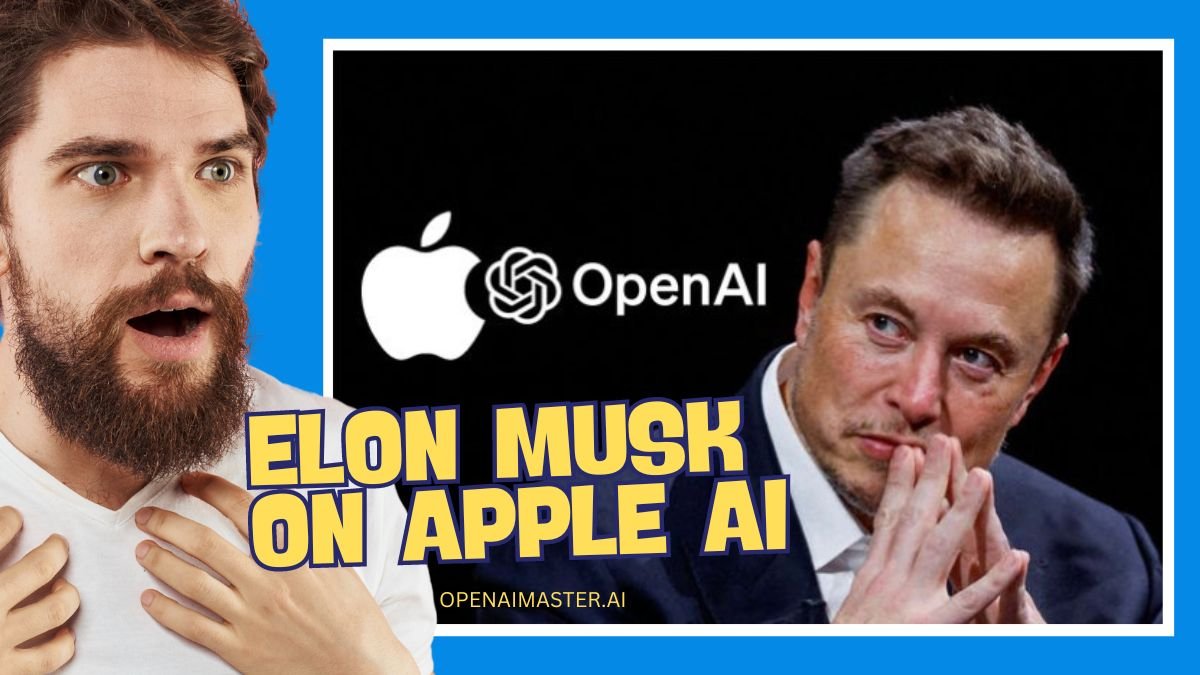Elon Musk, the outspoken billionaire CEO of Tesla, SpaceX, and X (formerly Twitter), has fired a warning shot at Apple over its recent deal to integrate OpenAI’s advanced language model, ChatGPT, into its operating systems. In a series of scathing remarks, Musk labeled the partnership an “unacceptable security violation” and threatened to ban Apple devices from his companies entirely.
At the heart of Musk’s concerns lies the potential risk to user privacy and data security. ChatGPT, a cutting-edge artificial intelligence system developed by OpenAI, has garnered widespread attention for its ability to understand and generate human-like text across a wide range of topics. However, its integration into Apple’s iOS and macOS platforms has raised eyebrows from Musk, a vocal advocate for safeguarding user data.
“Visitors to my companies will need to leave their Apple devices at the door, where they’ll be stored in Faraday cages to block all digital signals,” Musk declared, citing the need to prevent potential data breaches or unauthorized access to sensitive information.
For the uninitiated, a Faraday cage is an enclosure made of conductive material that blocks electromagnetic fields, effectively creating a barrier against digital transmissions. Musk’s proposed measure highlights the extent of his concern over the Apple-OpenAI partnership.
Musk’s skepticism about Apple’s ability to safeguard user privacy stems from the company’s decision to partner with OpenAI rather than develop its own AI solutions. “Apple can’t even develop their own AI, yet they expect us to trust that OpenAI will protect our data?” Musk questioned, casting doubt on Apple’s assurances that user data would remain secure.
The tech mogul’s opposition to the deal is further fueled by his ongoing legal battle with OpenAI, a company he co-founded but later left due to disagreements over its direction. Musk has accused OpenAI of deviating from its original mission to develop AI for the benefit of humanity, a claim that has added an extra layer of tension to the unfolding saga.
In response to Musk’s criticism, Apple has sought to allay concerns by emphasizing its commitment to user privacy. The company has highlighted features like Private Cloud Compute, which allows data processing to occur securely on the user’s device without exposing sensitive information to Apple or third parties.
“User data will not be stored or accessible to Apple, and users will have full control over their data when using ChatGPT,” an Apple spokesperson stated, adding that the integration with OpenAI is optional and requires explicit user permission for any data sharing.
The public reaction to Musk’s statements has been mixed, with some users voicing support for his stance on data privacy while others point to the optional nature of the OpenAI integration, arguing that users can simply choose not to enable it if they have concerns.
Experts in the field of cybersecurity and privacy have acknowledged the validity of Musk’s concerns, noting that the integration of powerful AI systems like ChatGPT into consumer devices carries inherent risks if not implemented with robust safeguards.
“While Apple’s approach to AI and privacy is generally considered robust, the introduction of third-party AI models raises new challenges,” said Dr. Emily Thompson, a cybersecurity researcher at Stanford University. “Users should be vigilant and exercise caution when engaging with these technologies, even if companies promise robust privacy protections.”
As the debate rages on, Musk’s opposition to the Apple-OpenAI deal appears to be a strategic move in his broader mission to establish his own AI company, xAI, as a viable competitor to OpenAI. xAI has developed its own chatbot, dubbed Grok, which Musk likely hopes will gain traction as an alternative for users concerned about privacy.
The clash between Musk and Apple over the OpenAI partnership highlights the growing tension between technological innovation and the need to safeguard user privacy in an increasingly data-driven world. As AI systems become more advanced and integrated into our daily lives, the balance between convenience and security will remain a delicate one, with tech giants like Apple and Musk’s companies vying for the trust and loyalty of consumers.

